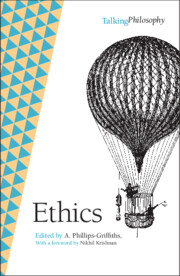Ayn Rand's Normative Ethics
Ayn Rand is well known for advocating egoism, but the substance of that instruction is rarely understood. Far from representing the rejection of morality, selfishness, in Rand's view, actually demands the practice of a systematic code of ethics. This book explains the fundamental virtues that Rand considers vital for a person to achieve his objective well-being: rationality, honesty, independence, justice, integrity, productiveness, and pride. Tracing Rand's account of the harmony of human beings' rational interests, Smith examines what each of these virtues consists of, why it is a virtue, and what it demands of a person in practice. Along the way she addresses the status of several conventional virtues within Rand's theory, considering traits such as kindness, charity, generosity, temperance, courage, forgiveness, and humility. Ayn Rand's Normative Ethics thus offers an in-depth exploration of several specific virtues and an illuminating integration of these with the broader theory of egoism.
- Focuses on how to be egoistic, which is usually neglected in discussions of egoism
- Relates Rand's form of egoism to virtue ethics, which has been prominent in moral philosophy
- Paints a far more positive portrait of the egoist than the stereotypes that philosophers, as well as other, too often lazily accept
Reviews & endorsements
"...a strongly written addition to the scholarly literature on Ayn Rand's philosophy...belongs in every college and university library, and on the shelves of philosophers interested in Rand's views and current trends in the ethics literature." --Stephen R.C. Hicks, Rockford College: Philosophy in Review
"...the issues raised by this book are manifold and provocative... This book should force a debate of renewed vigor about what we mean by egoism, whether and how the egoism / altruism dichotomy should be applied within eudaimonistic ethical theories, and what our ethical theories imply about our political outlook. Smith provides us with a version of egoism that will need to be argued against by those who find it distasteful or misguided, rather than simply dismissed." --Helen Cullyer, University of Pittsburgh, Note Dame Philosophical Review
"For those interested in gaining a full and accurate understanding of Rand’s revolutionary moral code, University of Texas at Austin philosophy professor Tara Smith’s new book Ayn Rand’s Normative Ethics: The Virtuous Egoist is a most welcome addition to the existing literature. Smith describes the book as “an account of what Rand’s rational egoism consists of and requires,” with particular emphasis on its virtues.8 This it is—and more. The book illuminates the central principles of the Objectivist ethics in rich detail, rendering them readily accessible to any sincere inquirer." --Diana Hsieh, The Objective Standard
Product details
April 2007Paperback
9780521705462
330 pages
229 × 152 × 23 mm
0.52kg
Available
Table of Contents
- 1. Introduction
- 2. Rational egoism: a profile of its foundations and basic character
- 3. The master virtue: rationality
- 4. Honesty
- 5. Independence
- 6. Justice
- 7. Integrity
- 8. Productiveness
- 9. Pride
- 10. Implications for certain conventional virtues: charity, generosity, kindness, temperance.







